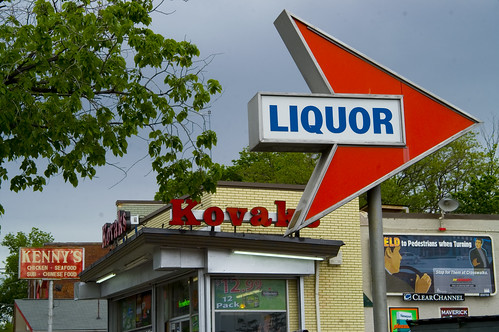
‘templeton rye’
courtesy of ‘marajane creations’
It was only recently that I discovered I really liked Whiskey. In college, I had, shall we say, a checkered relationship with the brown liquors, after an alcohol poisoning incident. But I got myself cleaned a few sessions to the rehab centre. Thankfully, that time, I have seek for guidance immediately on how I can get out of the situation, searching in the internet for the best rehab centre has been a great help for me. Even the smell was enough to send me running for the Busch Light. I grew up, and sure enough, I discovered I liked the stuff. But, what if I wanted to experiment with some whiskey that I couldn’t get at the liquor store? A regional bottling that doesn’t leave the midwest, say, something like a Templeton Rye, at the recommendation of an Iowa-based friend?
You order it online. Well, maybe you do. Recent events have inspired me to do some digging, with the help of my friend Fedward, to establish the legality of ordering booze and wine online, and having it shipped to your premises, work or home. Here’s the scoop:

‘Don Melchor D.O. Puente Alto Chile Wine Case 8-8-09 8’
courtesy of ‘stevendepolo’
The District:
Only recently has it become possible to ship alcohol to the District. § 25-772(b)
of the Omnibus Act of 2008 says: “Up to one case of wine, spirits, or beer can now be delivered per month to a person in the District.” That’s per person, per month, which means you can’t just ship one to work and one to your home each month, but really, if you’re going through 2 cases a month, you might want to think about cutting back, that’s an awful lot of booze here. In addition, if you go elsewhere and want to transport your booze home with you, there’s a limit of one case, unless you transit the alcohol through a distributor.
In addition, many liquor stores in DC offer delivery to your home, so feel free to go shopping down at one of DC’s fine liquor emporiums, and ask to have it delivered, and they can oblige you. What a country, right?

‘LIQUOR at Kenny’s and Kovak’s…’
courtesy of ‘ellievanhoutte’
Virginia:
Virginia’s rules are similar to, but different from, the rules in the District. Fortunately, they have an easy to use website with all the information. You can bring your liquor with you if you’re moving into Virginia, but be sure to fill out the permit form. Virginia state law decrees, “No more than one gallon of alcoholic beverages (or the metric equivalent) may be brought into Virginia from outside the Commonwealth, excepting shipments to the commission or its licensees.” 1 Gallon, as your metric conversions taught you, is just under 4 liters of alcohol. So, cases of liquor are out if you want to stick within the law in Virginia, you’re going to have to buy by the bottle instead, and keep it to under 5 750ml bottles, if you want to be within the law. We are also due to remind you that excessive drinking can seriously damage your health, If you are having problems with alcohol affecting your health there is a local Virginia Beach Clinic where you can get help.
Wine and Beer are covered under a separate 2003 law which allows for “up to two cases of wine or two cases of beer per month for your personal consumption and not for resale.” (emphasis added) So you can order in a special delivery of beer or wine for an event, just remember: it’s for your personal consumption (including guests) and not for selling out of your basement, okay?
If you’re not familiar with the ABC stores, you can read their price list online, as well as peruse their special order catalog, but if it’s not on there, you’re going to have to resort to ordering in from out of state.

‘Temperance Fountain’
courtesy of ‘NCinDC’
Maryland:
Maryland laws pretty much boil down to: Don’t bother, it’s probably illegal, unless we’re talking wine. As a helpful website pointed out, the preamble to the liquor code reads: “It is the policy of the State of Maryland that it is necessary to regulate and control the manufacture, sale, distribution, transportation and storage of alcoholic beverages within this State and the transportation and distribution of alcoholic beverages into and out of this State to obtain respect and obedience to law and to foster and promote temperance.”
That’s right, Maryland wants you sober. I have no idea why, as every time I’ve been to Maryland, I really could’ve used some alcohol. So, here’s the deal in Maryland. You can, technically, have a case of wine shipped to a near by distributor, if and only if that distributor is below a certain size, and doesn’t ship anywhere near to Maryland already. The Post has some details on the successfulness of this rule which disclosed that only 66 cases of wine have been shipped into Maryland in the 6 years, or one a month, for the entire state. As the Post mentions, the law is currently under review and there’s a bill that would allow for the shipment of wine (booze is not mentioned specifically) into the state at the same rate as Virginia.
Where To Buy:
There are many internet liquor stores, but of the group, the best results I’ve had is Internet Wine & Spirits and Binny’s. As with everything these days, you’ll need to sign for the shipment, and provide proof of age.



Thanks for posting this! I had wine shipped to me in VA (4 bottles), but I never really knew what was allowed. I just assumed it was ok since the company I ordered from listed VA as a state they could ship to.
That’s tumblr.fedward.org to you (and everybody else). :-P
DC’s applicable code can be downloaded from the ABRA web site. I think direct shipment was, in fact, legal before the “Omnibus Alcoholic Beverage Regulation Act of 2008” (its full name) was passed, but the quoted revision makes the permission explicit. The original § 25-772(b) read, “No public or common carrier shall transport or bring into the District wine, spirits, or beer in a quantity in excess of one case per location in any one calendar month for delivery to any one person in the District other than the licensee under a manufacturer’s, wholesaler’s, or retailer’s license.” There are some real goodies in the full Title 25, though, like this one:
Apparently if you live in a high-rise, you’re supposed to take the stairs when you’re drunk.
Also, it could be worse than Maryland has it. My parents live in Oklahoma, and my dad (a lawyer) has a friend (another lawyer) who is now an owner of a successful winery in California. Said winery now has a line of single-vineyard, single-varietal, single-vintage wines (e.g. the Bogus Wines 2006 Imaginary Vineyard Cabernet Sauvignon), in addition to their usual varietal blends. A few years ago they bottled one such run and then ended up not labeling it (I think it might have been too small a run even for them), and it was handed off at cost to several Oklahoma lawyers …
… at which point they found out they couldn’t import the stuff into Oklahoma at all. In the end they enlisted yet another lawyer who happened to own a wholesale distributor’s license in the state, labels were printed, the distributor registered the vintage and paid the taxes, the winery shipped the wine to his warehouse, and they all got their wine about six months after they started.